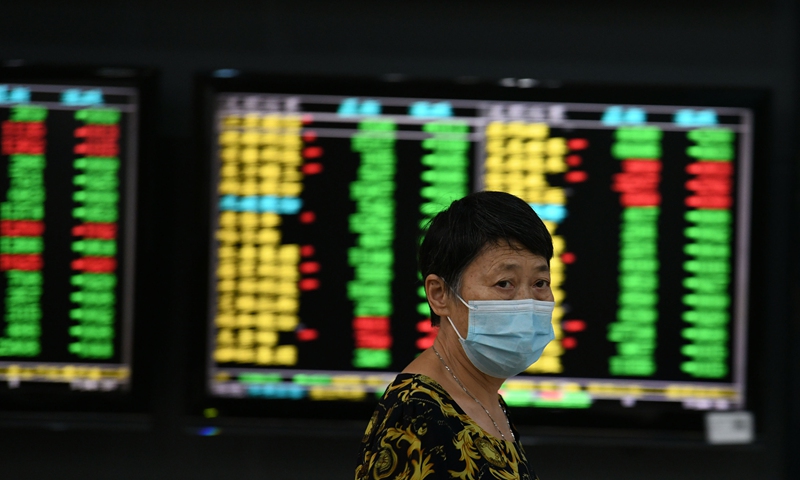SOURCE / MARKETS
Chinese stock markets nosedive as China-US tensions escalate

Photo: VCG
The Chinese A-share market continued to decline on Friday amid escalating diplomatic tensions between China and the US, with the closure of each other's consulates.
The Shanghai Composite Index dropped 3.86 percent to 3,196.77 points; the Shenzhen Component Index shed 5.31 percent to 12,935.70, and the tech-heavy ChiNext board slid 6.14 percent to 2,627.84 points.
Liquor, securities, free duty and semiconductors shares led the decline. For example, Kweichow Moutai, a Chinese liquor brand and stock giant, dropped 4.82 percent to 1,595.30 yuan ($227.33).
As investors remain concerned that the US may continue its crackdown on leading Chinese tech firms, tech shares also experienced a decline.
China's largest chipmaker Semiconductor Manufacturing International Corp., which recently listed in Shanghai, saw its share price plunge 8.67 percent to 71.95 yuan. Meanwhile, Chinese artificial intelligence chip unicorn Cambricon saw its shares decline 7.88 percent to 259.33 yuan.
For northbound trading - investors with Hong Kong accounts buying Chinese mainland shares - the net outflow reached 16.36 billion yuan on Friday, which is a relatively high level since the launch of Shanghai-Hong Kong Stock Connect in November 2014.
Yang Delong, chief economist at the Shenzhen-based First Seafront Fund Management Co., told the Global Times that Friday's decline was mainly due to the impact of US provocations with China, and the deteriorating COVID-19 situation overseas.
On Friday, China ordered the US to close its consulate in Chengdu, Southwest China's Sichuan Province, in retaliation for the US decision to close China's consulate in Houston.
A securities analyst, surnamed Li, said Friday's decline was partly a correction, as the market had started to soar on July 1.
According to data from industry data provider Wind, the Shanghai Composite Index rose 3.58 percent by Thursday this week; the Shenzhen Component Stock Index increased by 5.12 percent, and ChiNext climbed 5.8 percent.
"The A-share market may experience an adjustment of two weeks, but long-term growth prospects remain unchanged backed by China's fast economic recovery," Yang said, noting that the Chinese GDP may rise by 5-6 percent in the second half of the year.

